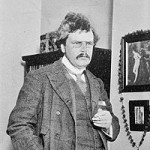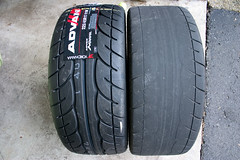A blast from the past here on MamaBlogga
 We’re often told raising our children isn’t enough: we should be “productive.” We should have “real jobs.” Strangers ask us to justify raising our children when we’ve obtained higher learning. We should “contribute to society.” I promised you a rant on how nothing contributes more to society than raising children will, but lovely guest blogger G.K. Chesterton (at right) has taken that up for me.
We’re often told raising our children isn’t enough: we should be “productive.” We should have “real jobs.” Strangers ask us to justify raising our children when we’ve obtained higher learning. We should “contribute to society.” I promised you a rant on how nothing contributes more to society than raising children will, but lovely guest blogger G.K. Chesterton (at right) has taken that up for me.
He was way ahead of his time, you know. I mean, the man died seventy years ago, and he had the foresight to write this post for me. Okay, okay, so really this is just a long quotation. Emphasis, images and paragraphs breaks added.
 Woman is generally shut up in a house with a human being at the time when he asks all the questions that there are, and some that there aren’t. It would be odd if she retained any of the narrowness of a specialist.
Woman is generally shut up in a house with a human being at the time when he asks all the questions that there are, and some that there aren’t. It would be odd if she retained any of the narrowness of a specialist.
Now if anyone says that this duty of general enlightenment (even when freed from modern rules and hours, and exercised more spontaneously by a more protected person) is in itself too exacting and oppressive, I can understand the view. I can only answer that our race has thought it worth while to cast this burden on women in order to keep common-sense in the world.
But when people begin to talk about this domestic duty as not merely difficult but trivial and dreary, I simply give up the question. To be Queen Elizabeth within a definite area, deciding sales, banquets, labors and holidays; to be Whiteley within a certain area, teaching morals, manners, theology, and hygiene; I can understand how this might exhaust the mind, but I cannot imagine how it could narrow it.
 How can it be a large career to tell other people’s children about the Rule of Three, and a small career to tell one’s own children about the Universe? How can it be broad to be the same thing to everyone, and narrow to be everything to someone? No; a woman’s function is laborious, because it is gigantic, not because it is minute.
How can it be a large career to tell other people’s children about the Rule of Three, and a small career to tell one’s own children about the Universe? How can it be broad to be the same thing to everyone, and narrow to be everything to someone? No; a woman’s function is laborious, because it is gigantic, not because it is minute.
G. K. Chesterton, What’s Wrong with the World, p 118-119
Thanks, G.K.! (Note that this is taken slightly out of context, but seriously, it’s a lot better this way. Don’t bother reading the stuff that comes before or after it; it’s not quite so “enlightened.”)
Photo credits: question mark—Svilen Mushkatov; globe—Sanja Gjenero

 There’s no way around it: motherhood—maintaining the home, providing meals, rearing children to become productive adults, sometimes even providing income for the family—is hard work. Even if we do just enough to get by, sometimes the work of motherhood is emotionally and physically exhausting.
There’s no way around it: motherhood—maintaining the home, providing meals, rearing children to become productive adults, sometimes even providing income for the family—is hard work. Even if we do just enough to get by, sometimes the work of motherhood is emotionally and physically exhausting.